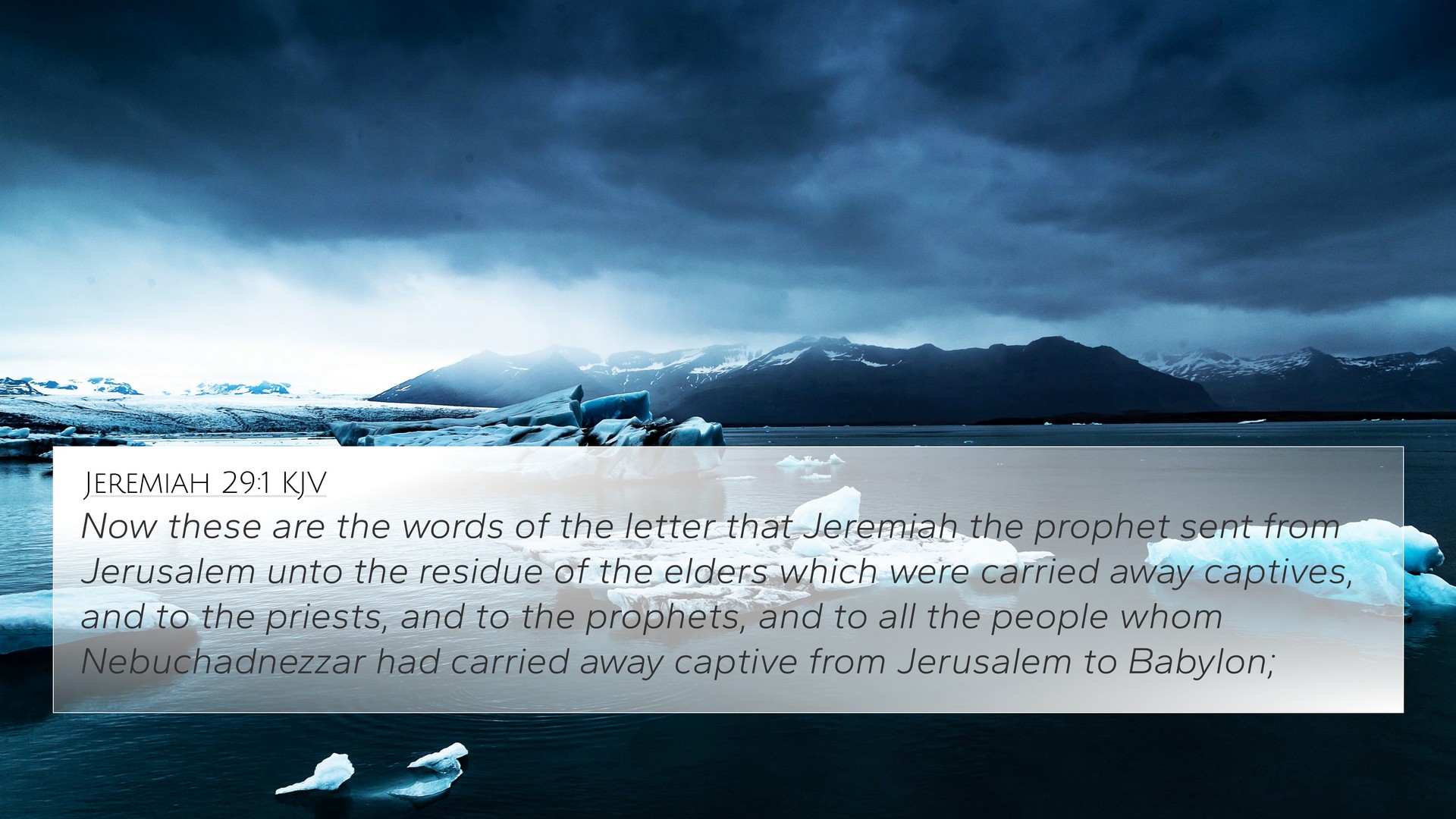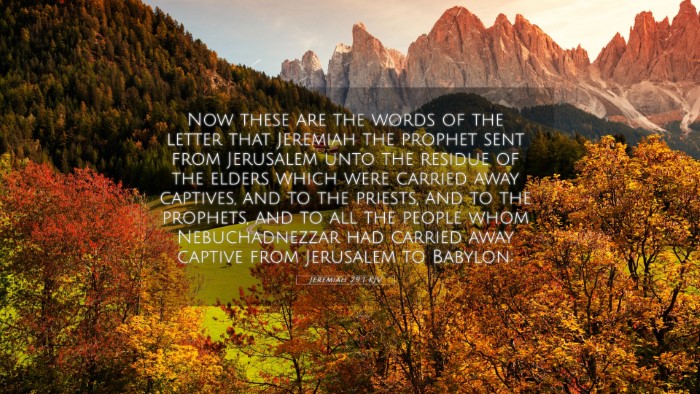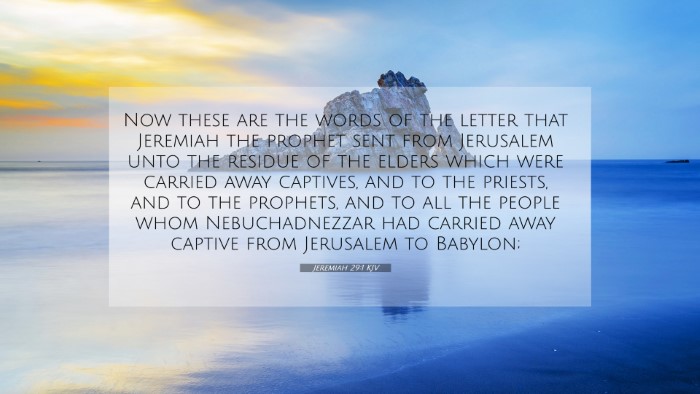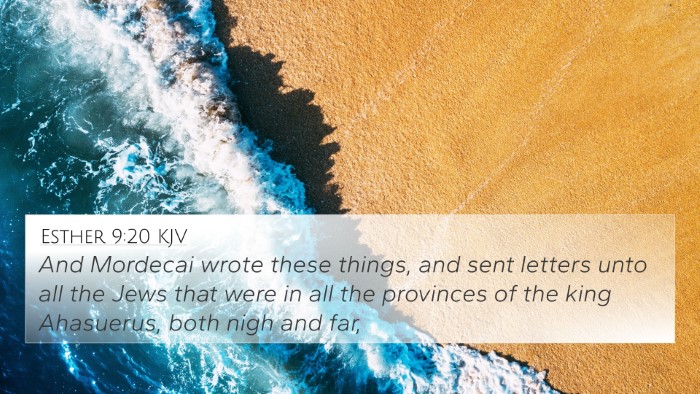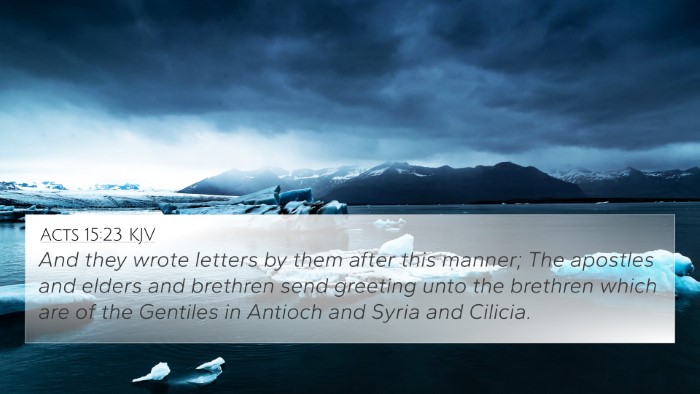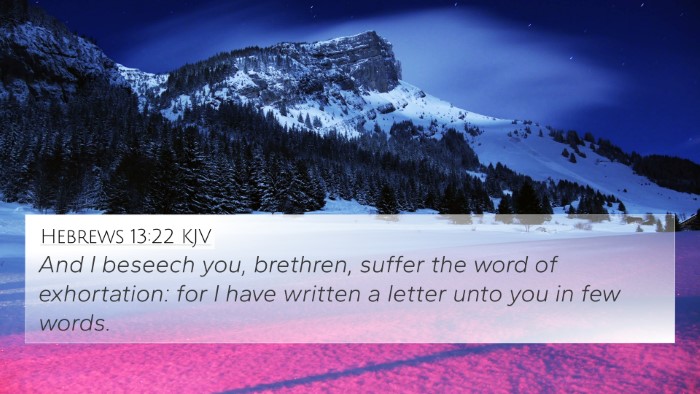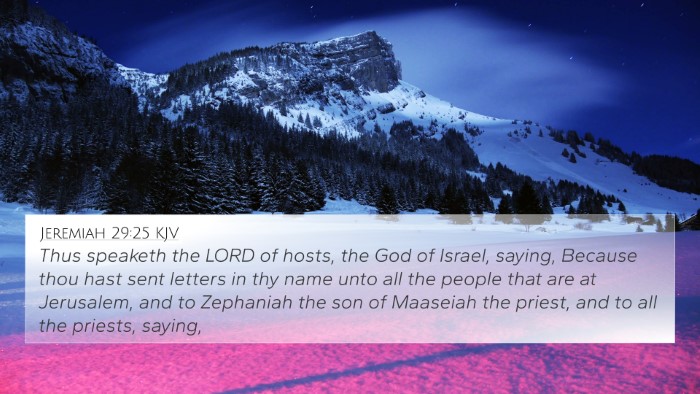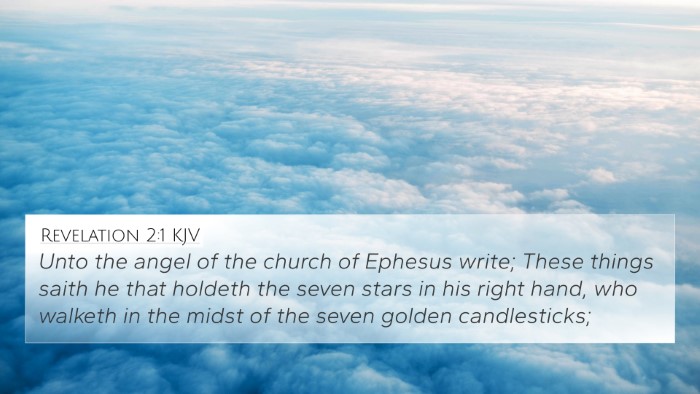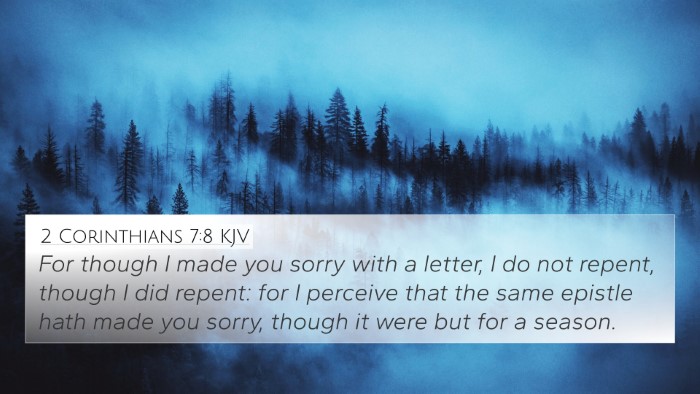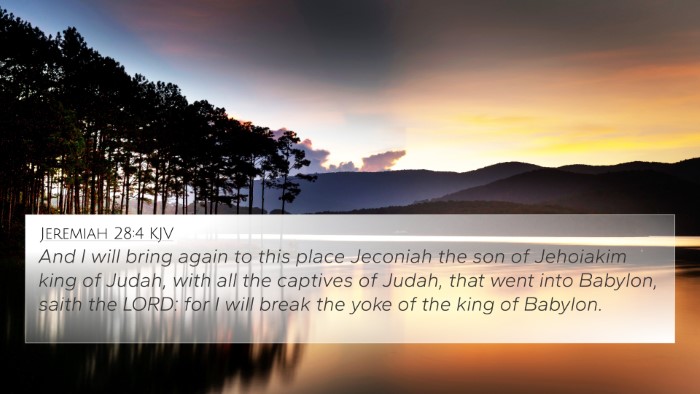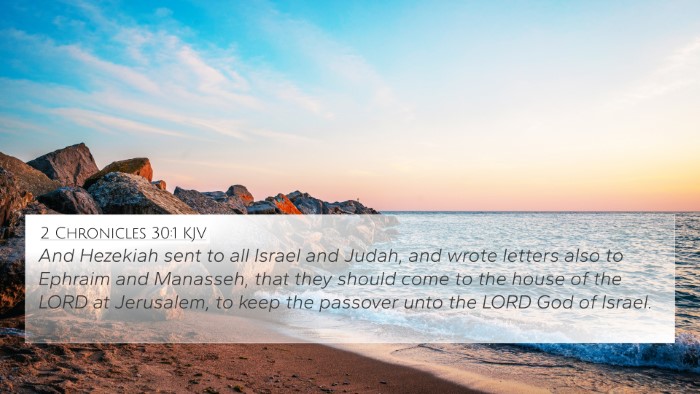Understanding Jeremiah 29:1
The verse Jeremiah 29:1 reads:
"Now these are the words of the letter that Jeremiah the prophet sent from Jerusalem unto the elders which were carried away captives, and to the priests and to the prophets, and to all the people whom Nebuchadnezzar had carried away captive from Jerusalem to Babylon."
This passage is significant as it sets the context for a letter of encouragement and guidance from the prophet Jeremiah to the Jewish exiles in Babylon. Below, we explore the insights from several public domain commentaries, linking them to other relevant Bible verses to construct a thorough understanding.
Context and Background
Jeremiah wrote this letter during the Babylonian exile, addressing the Jewish people who had been taken captive. The exiles were facing despair, questioning their future and maintaining their faith in God. The letter serves to remind them of God's sovereignty and plans for their restoration.
Insights from Commentaries
-
Matthew Henry:
Henry emphasizes the need for the exiles to settle into their new environment. He highlights that God’s plans are for their welfare and not for evil, reinforcing the idea that even in captivity, God has a purpose.
-
Albert Barnes:
Barnes notes the importance of maintaining hope. He outlines how God’s communication through Jeremiah serves as divine assurance that their current suffering is temporary and that restoration will come.
-
Adam Clarke:
Clarke discusses the multi-faceted roles of those receiving the letter, including elders and priests. He points to the communal aspect of faith during exile and how collective prayer and perseverance were vital.
Related Bible Verses
In studying Jeremiah 29:1, several related verses enhance the understanding of themes like exile, hope, and God's plans:
- Jeremiah 29:11: "For I know the thoughts that I think toward you, saith the LORD, thoughts of peace, and not of evil, to give you an expected end."
- Romans 8:28: "And we know that all things work together for good to them that love God, to them who are the called according to his purpose."
- Psalms 137:1: "By the rivers of Babylon, there we sat down, yea, we wept, when we remembered Zion."
- Isaiah 40:31: "But they that wait upon the LORD shall renew their strength; they shall mount up with wings as eagles; they shall run, and not be weary; and they shall walk, and not faint."
- 1 Peter 5:10: "But the God of all grace, who hath called us unto his eternal glory by Christ Jesus, after that ye have suffered a while, make you perfect, stablish, strengthen, settle you."
- Isaiah 43:2: "When thou passest through the waters, I will be with thee; and through the rivers, they shall not overflow thee: when thou walkest through the fire, thou shalt not be burned; neither shall the flame kindle upon thee."
- Philippians 4:19: "But my God shall supply all your need according to his riches in glory by Christ Jesus."
- Jeremiah 31:10: "Hear the word of the LORD, O ye nations, and declare it in the isles afar off, and say, He that scattered Israel will gather him, and keep him, as a shepherd doth his flock."
Thematic Links and Connections
Understanding Jeremiah 29:1 reveals connections to broader biblical themes:
-
Hope in Despair: The theme of hope amidst despair resonates through verses like Romans 8:28 and Isaiah 40:31, emphasizing God's purpose even in difficult times.
-
God's Sovereignty: Acknowledging God's control over circumstances is reflected in 1 Peter 5:10 and Jeremiah 29:11, reinforcing trust in His plans.
-
Community in Exile: The communal aspects of faith during trials can be seen in Psalms 137:1, where the sorrow of the people is expressed collectively.
Engaging with Bible Cross-References
Engaging with Bible cross-references enriches the study of Jeremiah 29:1. Here are some tools and methods for effective cross-referencing:
-
Bible Concordances: Use concordances to search for words and themes related to exile, hope, and God’s promises.
-
Bible Reference Resources: Reference materials can guide you through thematic studies linking verses across both Testaments.
-
Cross-reference Bible Study: Developing a methodical approach for linking verses that discuss exile can illuminate recurring biblical themes.
-
Bible Chain References: Create chains of related verses to explore how biblical ideas connect throughout Scripture.
Conclusion
In conclusion, Jeremiah 29:1 serves as a vital reminder of God’s communication with His people, particularly during trials. Through the letter's context, the insights from notable commentaries, and the related Bible verses, a fuller understanding of God's promises and the hope He provides emerges. Engaging with interconnected scriptures enables deeper exploration of biblical themes and encourages faith through challenging circumstances.
Further Exploration
To delve deeper into your study, consider asking:
- What verses are related to Jeremiah 29:1 in terms of hope and restoration?
- How do the themes of God's sovereignty manifest in the teachings of the New Testament?
- What are the parallels between the experiences of the exiles and the teachings of Jesus?
